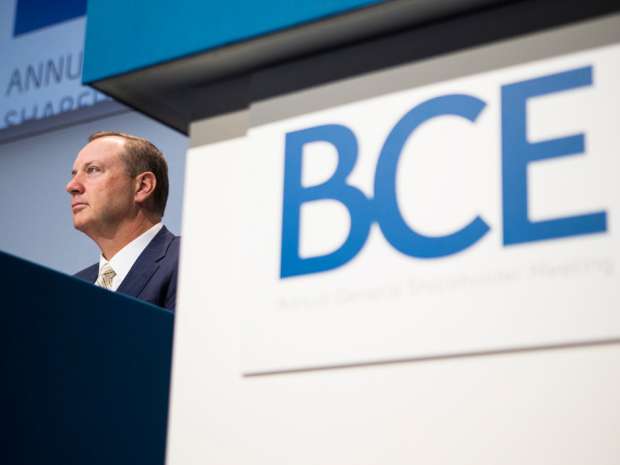by Franklin Templeton Investments blog, Franklin Templeton Investments
The Digest
Global equity markets were mixed last week, with European equities underperforming their US counterparts amid risk-off sentiment. The STOXX Europe 600 Index closed the week down 3%, whilst the S&P 500 Index gained 1.7%.1 Equity indices in the Asia Pacific (APAC) region were also mixed, with mainland China the standout outperformer and Japan the week’s loser. Key themes were the ongoing COVID-19 pandemic and its impact, earnings season in the United States and Europe, the US Federal Reserve (Fed) meeting, and ugly gross domestic product (GDP) data.
Risk Off in Europe
The majority of losses in European equities came on 30 July, whilst US equities were more resilient and squeezed higher at the end of the week. There were a number of moving parts feeding into the underperformance in Europe:
- COVID-19: The pickup in cases and reinstatement of local lockdowns in Europe and the United Kingdom, as well as second-wave fears, seem to remain the biggest underlying concern for markets. The UK’s travel decision regarding Spain (reinstating a two-week quarantine) has received a lot of press, but we’re also seeing countries that did well initially to contain cases see flareups again (Germany and France). Outside of Europe, the headlines are dismal, with China, Hong Kong and Japan seeing the most cases in months, and deaths in some US states hitting new record highs.
- European Earnings: We saw the busiest earnings day of the season in Europe last week. Headline numbers looked okay versus consensus expectations for the most part, but many companies gave weaker guidance about future earnings, or no guidance at all. This came as a negative surprise, especially given some improvements in data prior. With risk sentiment already skewed to the downside, the weak and uncertain earnings picture likely encouraged sellers.
- Data Dips: In addition to the lacklustre earnings, macro data points put V-shaped recovery hopes at risk. German second-quarter (Q2) GDP data came in below estimates, showing a 10.1% contraction versus the first quarter, wiping out nearly 10 years of growth. This fed into the selloff and saw Germany’s benchmark DAX Index It’s important to remember the second quarter was expected to be bad. The new orders component of the July purchasing managers index (PMI) came in at a punchy 58.7, so there are hopes that we could be seeing the trough. Regardless, the print weighed heavily on the market, and the selloff was exacerbated in the afternoon with the release of US GDP. The headline figure was slightly ahead of expectations, but it was the sharpest post-war contraction, coming in at -33% year-over-year, and -9.5% quarter-over-quarter. Quite dramatic numbers. Weekly jobless claims also rose 1.43 million (the day before supplemental jobless aid ends for 17 million total unemployed). On 31 July, France, Italy and Spain also reported double- digit Q2 declines in GDP.
- Sector Moves: Bank stocks led the general market selloff amid a number of earnings in the space. There also may have been a delayed reaction to the European Central Bank’s (ECB’s) announcement on discouraging companies from paying dividends until at least 2021. We also have the US Fed looking at “lower for longer” in regard to interest rates. Banks have lagged the broader market since the selloff in March and more disappointing results this morning suggest we will likely continue to see this. There were a couple of high-profile earnings in the autos space, which saw the sector down overall last week. Surprisingly, given the latest COVID-19 numbers and quarantine move in the United Kingdom, the travel and leisure sector was the best performer last week, although this did reverse at the end of the trading week. The more defensive real estate sector was the only green spot last week.
- Geopolitics: We’re all used to the frequent and inflammatory nature of US President Donald Trump’s tweets, and they do have the power to play into market moves. A tweet on 30 July raised the prospect of postponing the upcoming election. Whilst it is unlikely to amount to anything, markets were jittery enough to let this weigh on already-heavy sentiment.
- US Outperformance Drivers: Having mentioned grim COVID-19 reports from the United States, the ugly data, and the continued bubbling of geopolitical concerns, why did the US equity market outperform most others globally? A dovish tone from the Fed helped, as did the Republican party’s release of details of a potential fourth economic stimulus package. Perhaps more influential in these quiet summer weeks, however, is the directional role played by the five largest stocks in the United States. Four of the five largest companies in the S&P 500 Index by market capitalization (AAPL, AMZN, GOOGL, FB) reported earnings on 30 July; together they grew revenues and earnings per share 18% and 27% year-over-year in the worst quarter of the pandemic.
Week in Review
Europe
European equities closed last week down 3%, with Spain (-5.7%) the worst performer after the United Kingdom reintroduced a two-week quarantine period for people coming into its country from Spain. This delivered a shock to the already-battered travel industry, just as some signs of recovery had started to show. Italy’s market also struggled last week. Italian banking stocks fared poorly amid some disappointing earnings releases and a delayed reaction to the ECB’s directive to banks to stop paying dividends until January.
The UK government action regarding Spain came as the seven-day daily average of coronavirus cases continues to rise—Spain had 2,300 daily new cases on 31 July vs. 1,615 at the end of the previous week. However, it’s important to note these figures are lower than the peak of 7,754 at the worst period. Other actions the United Kingdom took last week included a reintroduction of local lockdowns, and the rollback of easing measures in Greater Manchester, parts of east Lancashire and west Yorkshire to tackle a rise in cases in the area. It is likely we will see more such actions in the future, which risks the slowing or halting of the economic recovery that already looks less likely to be V-shaped.
It was an extremely busy week for earnings, with focus falling on those releases suggesting that the third quarter may be a little softer than expected, again dampening those hopes for a V-shaped recovery. The STOXX Europe 600 Index has seen 63% of companies beating consensus estimates so far, but it’s important to note that this is versus low expectations. And, it is the forward guidance that is a focus for many market observers, with a number of companies still declining to provide anything concrete given the ongoing uncertainty.
There was some positivity from the United Kingdom as more than £1 million in dividends have been restored in recent weeks, suggesting the impact had not been as bad as first feared.
United States
As noted, US equities outperformed their European counterparts last week. The tech-heavy NASDAQ Index outperformed, driven by earnings-related rallies in tech-sector heavyweights Apple, Amazon, Google, and Facebook. The S&P 500 Index has seen almost 85% of companies beat earnings expectations, but as with Europe, we would caveat that this is from low expectations.
Outside of these high-profile earnings releases, the Federal Open Market committee (FOMC) meeting on 29 July was the main event last week. As expected, there was no change to policy, but the tone was dovish. Fed Chairman Jerome Powell said that the central bank will continue making sizable purchases and reiterated that it will do what it can for “as long as it takes”. There was some commentary on yield-curve control, with Powell saying that the Fed will wrap up its deliberations on the long-running policy review, which could see changes in how the Fed conducts its policy action.
We are likely to see a more interesting announcement at the September policy meeting, with a possible preview at the Fed’s Jackson Hole Symposium later in August. The US central bank and the federal government have injected about US$5 trillion into the US economy in the second quarter, exceeding quarterly nominal GDP of US$4.85 trillion.
Last week, the Republicans laid out their plans for a fourth stimulus package, which continued to be debated over the weekend. The US Congress and the White House are struggling to reach an agreement on the deal. Democrats want to renew the supplemental US$600 per week in unemployment benefits until early 2021, but Republicans have resisted, initially arguing that new stimulus was not necessary and then pushing for much smaller payments. We can expect headlines on this throughout the week.
Another ongoing theme in the United States is currency weakness. Last week the US dollar hit its weakest level in more than two years after GDP declined 33% in the second quarter and jobless claims rose again. July was the worst month of dollar performance in 10 years. Concerns over the economic recovery in the United States, additional negative COVID-19 headlines, as well as political considerations ahead of the November presidential election are all playing into this dynamic. Investors have been moving into government bonds given the shaky macro backdrop, causing the real US 10-year Treasury yield (stripping out consumer price changes) to hit -1% last week.
APAC
Equities in the APAC region were mixed last week. Mainland Chinese equities outperformed whilst Japan lagged. Despite pockets of weakness and a soggy close last week, the MSCI APAC Index capped four months of gains, recovering much of the ground lost in March’s selloff. Macro data showed Chinese factory activity accelerated in July, marking a fifth straight month of expansion. Whilst there was some caution from analysts that the recovery could lose momentum (especially as we see localised virus spikes), this helped sentiment in the region.
Tensions with the United States remain an overhang and on 7 August, the US Treasury Working Group is expected to report on the issue of Chinese companies listed in the United States. The group, comprising of the Treasury, the Fed, the US Securities and Exchange Commission (SEC) and the Commodity Futures Trading Commission (CFTC), is expected to be in favour of a ban on Chinese companies listing in the United States. An increasing number of Chinese companies are making the move to Hong Kong or even back to Shanghai ahead of changes in rules.
Hong Kong also remains in focus, with Chief Executive Carrie Lam postponing September’s planned elections. Lam invoked emergency powers to do this, citing COVID-19 impact, but the move has drawn condemnation from the United States. The territory’s pro-democracy parties had hoped to perform strongly in the elections and this move will likely increase unrest. Hong Kong has been reporting record daily numbers of new COVID-19 cases in the past few weeks.
The Week Ahead
The big data point will be the July US employment report on Friday. Also key will be Global Manufacturing and Services PMI for June, coming out later this week.
The Bank of England (BoE) makes its interest-rate announcement on 6 August, and most market observers expect no changes at this week’s August Monetary Policy Meeting. The BoE is still purchasing within the £100 billion Quantitative Easing extension it announced in June, and it does not see additional easing until the contours of the recovery become clearer or a renewed shock hits. The BoE may reveal more on its thinking over negative interest rates, but it could still be too early to expect a firm conclusion from policymakers. The BoE will likely conclude it has room to cut rates more but will want to tread very carefully.
Market holidays: None of note.
Calendar
Monday 3 August
- Economic/Political:The St. Louis Fed’s James Bullard and Chicago Fed’s Charles Evans speak
- Data: Global: (June) manufacturing PMI; US: Institute of Supply Management Manufacturing; China: Caixin Manufacturing PMI
Tuesday 4 August
- Economic/Political: Reserve Bank of Australia monetary policy meeting
- Data: US: (June) Factory Orders; Japan: (July) Tokyo Consumer Price Index (CPI)
Wednesday 5 August
- Economic/Political: Cleveland Fed’s Mester speaks, Department of Energy data
- Data: Global: (June) Services & Composite PMI, Eurozone: (June) Retail Sales; US: (July) ISM Non-Manufacturing, (July) ADP Employment
Thursday 6 August
- Economic/Political: BOE monetary policy meeting and press conference
- Data: Germany: (June) Factory Orders, Italy: (June) Industrial Production (IP); US: (1 August) Initial Jobless Claims
Friday 7 August
Data: Germany: (June) IP, (June) Trade Balance, France: (June) IP, Switzerland: (July) Foreign Currency Reserves; US: (July) Employment Report; China (July) Trade Balance, (July) Foreign Reserves; Japan: (July) Household Spending
Views You Can Use
Insight from Our Investment Professionals
On My Mind: They Blinded Us from Science
Our Fixed Income CIO Sonal Desai unveils the first insights from the new Franklin Templeton–Gallup research project on the behavioural response to the COVID-19 pandemic and implications for the recovery: we find a gross misperception of COVID-19 risk, driven by partisanship and misinformation, and a willingness to pay a significant “safety premium” that could affect future inflation. Read More.
COVID-19 Crisis Accelerates the Digital Transformation Trend
Digital transformation was already underway prior to the COVID-19 pandemic, but the resulting economic crisis has caused an acceleration, according to Franklin Equity Group’s Jonathan Curtis. He shares where his team is looking for potential opportunities within technology during the current period and beyond. Read More.
EU’s €750 Billion Rescue Plan a Strong Affirmation of European Integration
After much debate, the ink is now dry on Europe’s €750 billion coronavirus fiscal rescue package, initially proposed in May. David Zahn, our Head of European Fixed Income, says it marks a strong affirmation of European integration and support for beleaguered countries—good news for investors. Read More.
ESG Gains Traction in China as Investor Base Expands
As China’s equity markets gradually open up to foreign investors, Chinese companies could face greater scrutiny, according to Franklin Templeton Emerging Markets Equity’s Michael Lai. He weighs in on some emerging trends he’s seen in regard to environmental, social and governance (ESG) issues there. Read More.
For timely investing tidbits, follow us on Twitter @FTI_Global and on LinkedIn.
Important Legal Information
This material is intended to be of general interest only and should not be construed as individual investment advice or a recommendation or solicitation to buy, sell or hold any security or to adopt any investment strategy. It does not constitute legal or tax advice. The views expressed are those of the team and the comments, opinions and analyses are rendered as of publication date and may change without notice. The information provided in this material is not intended as a complete analysis of every material fact regarding any country, region or market.
Companies and/or case studies referenced herein are used solely for illustrative purposes; any investment may or may not be currently held by any portfolio advised by Franklin Templeton. The information provided is not a recommendation or individual investment advice for any particular security, strategy, or investment product and is not an indication of the trading intent of any Franklin Templeton managed portfolio.
Data from third party sources may have been used in the preparation of this material and Franklin Templeton (“FT”) has not independently verified, validated or audited such data. FT accepts no liability whatsoever for any loss arising from use of this information and reliance upon the comments, opinions and analyses in the material is at the sole discretion of the user. The companies and/or case studies shown herein are used solely for illustrative purposes; any investment may or may not be currently held by any portfolio advised by Franklin Templeton.
Products, services and information may not be available in all jurisdictions and are offered outside the U.S. by other FT affiliates and/or their distributors as local laws and regulation permits. Please consult your own financial professional or Franklin Templeton institutional contact for further information on availability of products and services in your jurisdiction.
Issued in the U.S. by Franklin Templeton Distributors, Inc., One Franklin Parkway, San Mateo, California 94403-1906, (800) DIAL BEN/342-5236, franklintempleton.com—Franklin Templeton Distributors, Inc. is the principal distributor of Franklin Templeton’s U.S. registered products, which are not FDIC insured; may lose value; and are not bank guaranteed and are available only in jurisdictions where an offer or solicitation of such products is permitted under applicable laws and regulation.
What Are the Risks?
All investments involve risk, including possible loss of principal. The value of investments can go down as well as up, and investors may not get back the full amount invested. Stock prices fluctuate, sometimes rapidly and dramatically, due to factors affecting individual companies, particular industries or sectors, or general market conditions. Bond prices generally move in the opposite direction of interest rates. Thus, as prices of bonds in an investment portfolio adjust to a rise in interest rates, the value of the portfolio may decline. Investments in foreign securities involve special risks including currency fluctuations, economic instability and political developments. Investments in developing markets involve heightened risks related to the same factors, in addition to those associated with their relatively small size and lesser liquidity.
Past performance is not an indicator or guarantee of future performance. There is no assurance that any estimate, forecast or projection will be realised.
Links to External Sites
Franklin Templeton is not responsible for the content of external websites.
The inclusion of a link to an external website should not be understood to be an endorsement of that website or the site’s owners (or their products/services).
Links can take you to third-party sites/media with information and services not reviewed or endorsed by us. We urge you to review the privacy, security, terms of use, and other policies of each site you visit as we have no control over, and assume no responsibility or liability for them.
________________________
1. Indices are unmanaged and one cannot directly invest in an index. They do not include fees, expenses or sales charges. Past performance is not an indicator or guarantee of future results.
This post was first published at the official blog of Franklin Templeton Investments.















